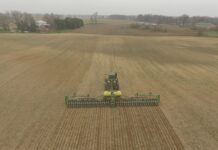In July of 1786, Abigail Adams, in London, received a letter from her sister about her son, John Quincy Adams. At this time, John Quincy Adams was 19 years old and had already served on diplomatic missions during the American Revolutionary War in France and the Netherlands, served as secretary to the American Diplomat in Russia, attended class at Leiden University in the Netherlands, and served as his father’s secretary as the first Ambassador to England.
Additionally, he had just completed his first year of studies at Harvard. John Quincy Adams’s education, intelligence and world exposure and travels far exceeded that of the majority of American citizens at the time, and he was a self-appointed expert on all matters.
Abigail’s sister wrote that John Quincy was a very impressive young man, but he seemed a little overly enamored with himself and his opinions, and that it was not going over very well with the people in town.
Upon receipt of the letter Abigail took pen in hand and wrote to her son: “If you are conscious to yourself that you possess more knowledge upon some subjects than others of your standing, reflect that you have had greater opportunities of seeing the world and obtaining knowledge of mankind than your contemporaries. That you have never wanted a book, but it has not been supplied to you. That your whole time has been spent in the company of men of literature and science. How unpardonable would it have been in you to turn out a blockhead!”
Blockheads
Often times in the soil and water and the overall government world, we are blockheads and it is unpardonable. We come to your farm with our education and experience and go on about what you are doing right and wrong or what you should be doing and should not be doing. We are taking the role of John Quincy Adams and that is unpardonable.
Your local soil and water office is and should be utilized as a resource to help you prosper in what you do. Many of us have gone to school for a wide variety of fields and all have continued our education through classes, conferences, and training.
Ronald Reagan once stated “the top nine most terrifying words in the English language are: “I’m from the government, and I’m here to help.” However, that is our purpose, and we are capable of being a great resource to help you with your land and the natural world around you.
If you want to talk general farming, watersheds, soil health, forestry, wildlife, native plants, crops, fertilizer, rotational grazing, fencing, stormwater or whatever it may be, we can help you and would love to talk with you about it all.
However, if we come out like blockheads, call us on it and remind us that you haven’t had the experiences we have had nor been ingrained with the ability to decipher acronyms with ease.
The historian and author David McCullough gave a speech and related the story of Abigail Adams’s disappointment in her son’s behavior, but he carried it further and exclaimed “how unpardonable it would be for us — with all that we have been given, all the advantages we have, all the continuing opportunities we have to enhance and increase our love of learning — to turn out blockheads or to raise blockheads.”
Stop learning
This is a very true statement and one that we at the soil and water office often face. We work with a landowner for a few years, and they quit calling because “they have learned enough.”
This is especially true for some generational farmers and landowners who grew up working the land and insist they have learned enough. If we ignore the opportunities before us to continue learning and enhance our understanding of things, then we are blockheads.
Just imagine at what point have you learned everything on a subject? More importantly at what point do you want to freeze everything and say at this moment I am good and should change nothing!?
At some point in the 1960s, my aunt got a trendy beehive hairdo and was the talk of town. She was cutting edge and had reached a zenith. Everyone said she was stylin’ and looked good; she said, “great, I’m done. This is my look because I have reached the top.”
Well, needless to say, the sands of time continued to shift but never my aunt’s hair, which was forever encased in a shell of Aquanet. She and her hair were firmly set. Well as the times, trends and fashions changed, my aunt was still the talk of town but in a negative light.
When you refuse to change or rest on your laurels, life, time and everyone else passes you by. We must constantly learn and never be satisfied. The depths of nature are astonishing, and we are constantly learning about new things or how other things are horrible.
What if you or your parent rested on their laurels in 1968? In 1968, DDT was the application of choice for farms and multiflora rose was heavily promoted as a great solution to living fences, erosion control and barriers.
If you thought you knew everything about farming then and quit actively educating yourself, would you still be spraying DDT and planting multiflora rose? If you were, how big of a blockhead would you be considered?
Maximize your property
The moral of this story is that we are living in a phenomenal time. Science, research and technology has ventured in so many directions that the ability to maximize your property and turn it into exactly what you want is out there.
However, as your land is a part of nature, it is constantly changing and evolving, and you must do so as well. You must continue to educate yourself and use soil and water office as a resource to do so. In fact, I implore you to urge your soil and water office to offer you the educational tools you need — whether it is a one-on-one experience or a seminar.
And by all means, make sure that we as soil and water conservation officials are speaking in terms that you understand and are open to all avenues.
Together, we can do great things and learn from one another. How unpardonable it would be if we were blockheads?












